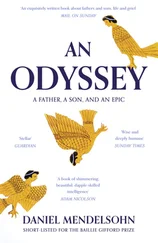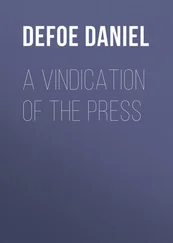With the help of Sherry Greenleaf, Aasha and Harmony fled to Inglewood yet again and took refuge in a women’s shelter. But without a decent source of income, Aasha could no longer afford the twelve dollars a night the shelter charged. She and Harmony soon moved into the Dominguez Hills apartment of Kenneth Prince — Franklin’s son, Harmony’s biological half brother, and Aasha’s former (and obviously forgiving) foster brother. Before long, he and Aasha became lovers, and she became pregnant with her second child. This new addition to the family would be, like Kenneth, Harmony’s biological half sibling.
Confused? Don’t worry. Things are about to get terribly simple.
On June 17, 1994, at 11:15 a.m., John M. Jackson used an aluminum bat to break into the apartment and skull of Kenneth Prince. A hysterical Aasha tried to stop him, but a firm swing to her temple instantly ended her life and the one inside of her. She was twenty-seven.
Four hours later, Harmony came home from her last day of school and discovered the bodies on the floor. She was a year younger than Madison.
“Jesus Christ.”
That was my first reaction. In fact, that was my only reaction throughout the entire tale. And Eddie wasn’t the best narrator. His delivery was embarrassingly flat, and his nasal, squeaky voice made him sound like Dustin Hoffman doing a bad impression of Andy Rooney. But Harmony’s story transcended the telling.
John M. Jackson was caught, convicted, and sentenced to three consecutive life terms. This all happened with lightning speed and little fanfare. Domestic crimes, especially among the minority masses, were never big news to begin with. Even if a reporter had wanted to glom on to the human-tragedy angle of young Harmony’s plight, it would have been crushed under the wheels of O.J.’s big white Bronco, which made its historic run across every channel the day Harmony became an orphan.
Well, half orphan. But Harmony’s biological father was nowhere to be found, so she became a ward of the county. For the next four years, she bounced her way through a dozen foster and group homes. Some of them were straight out of Dickens. At one home, the girls weren’t allowed to use electricity after 6 p.m. At another, Harmony was locked in her unventilated room all summer. And at yet another, Harmony was sent to the emergency room after a roommate attacked her with a knife. She had to get thirty-two stitches on her left arm.
Despite all of this, she went on to become a model student. At fifteen, she made the local news by winning first prize at a regional poetry competition. This brought her to the attention of Jay McMahon and Sheila Yorn, a pair of freelance filmmakers who were looking to shoot a multi-part documentary about inner city black kids. Harmony gave them more than a hundred hours of footage: interviews with her, interviews about her, follow-arounds, you name it. Her story was so compelling that four of the other eight subjects were dropped from the lineup and the remaining three were relegated to supporting roles. On seeing the rough cut of the first episode, PBS began negotiations to air the whole series. Suddenly our tragic heroine was fixing to become the biggest thing to hit public television since Barney.
And then, tragically, it all fell apart. Sometime during final editing, Jay and Sheila hit a major skid in their twelve-year romance and split up. Worse, they waged a long and vicious battle over the rights to the unfinished documentary. By the time I’d gotten wind of this, nearly four years later, the tapes were still trapped within the legal chalk circle, with both parties refusing to let go. My plans would only make things worse for them. That footage was about to become white-hot property.
But I could imagine poor Harmony’s anguish. The documentary was going to be her claim to fame, her backstage pass into the hearts, minds, and checkbooks of the guilty white elite. Sorry, toots. It’s back to the scenery for you. But hey, you came real close. Don’t lose hope. Best of luck in the future.
If there wasn’t already enough evidence to prove the existence of God through His inexplicable beef against Harmony Prince, here comes the final kicker. On December 18, 1998, just halfway through her junior year, she was hit by a speeding LAPD cruiser.
Harmony had just stepped into the crosswalk at La Cienega and Arbor Vitae when the cop car turned a sharp corner and rammed her. Had the driving officer been even less attentive, Harmony would have been rendered to pieces. As it was, the policeman spotted her with just enough time to skid into her at thirty five miles an hour. In the span of a second, she was thrown into the windshield, flipped over the siren, and then spiked down to the ground like a touchdown ball. Her body rolled twenty feet before coming to a stop.
Obviously this was California’s problem. The incident caused a major row between the city of Los Angeles, which was financially liable for the LAPD, and the county of Los Angeles, which was financially responsible for Harmony. Eddie had to sift through two hundred pages of bureaucratic hair-pulling just to find out what happened to her.
After three days in a coma, she emerged with all her memories intact but left behind her ability to read, write, and speak. It took thirteen months of rehabilitation in a Watts convalescent home to bring her back to ninety percent of her old self. By then she was no longer a minor, and thus no longer California’s problem. Worse, at ninety percent functionality, she didn’t qualify for state disability benefits. Had she the mind or the will to hire even a crappy lawyer, she probably would have scored a high-five-figure settlement from the government, possibly more. But all she got was $212 of “good luck” money and a few references for private group homes.
Thus, on January 25, 2000, Harmony Prince was set free into the world, left to God’s good graces. Fortunately, God seemed to be done with her.
I guess that made it my turn.
Life has not been good to me , I pictured a tearful Harmony telling the press. I know that’s no excuse for what I did. And I can’t apologize enough for what I put Jeremy and his family through. But in the end, I was tired. I was tired of doing everything the hard way. And when that white man offered me money to tell a lie, I did it. I was weak. I was wrong. And I am sorry.
I took out the photo, the cruddy little Polaroid that had captivated me earlier that day. There was no doubt left. She was my Venus. And I knew the only way I could move forward without my nagging conscience tripping me up was if I convinced myself, once and for all, that Harmony Prince would finish this tale better off than when she started. When’d she tell the world she was sorry, it would be nothing but a happy lie. Just the latest in a long string of words, my words, coming out of her mouth.
“You were right. I was wrong. Your plan is ingenious. I see it now.”
Those words came directly from the mouth of Maxina Howard. They had to travel through five miles of fiber optics, but they reached their intended source. Pinch me, Simba. I may be dreaming again.
At 9 p.m on Sunday, I called Maxina at her hotel. My main goal was to tell her all about Harmony, but I also wanted to give her mad props for the Dateline NBC coup. Ever since Thursday, she’d been chipping away at BET’s video archivists, trying to get a copy of last year’s 106 & Park clip in which special guest Hunta described “Bitch Fiend” as a morality tale. Not only did Maxina succeed in shaking the footage loose, but she managed to get it to NBC’s midtown Manhattan office right under the wire. That may seem like no big deal to the average person, but then the average person can’t fathom the great corporate gorge Maxina had to jump. You see, BET was the recent three-billion dollar acquisition of media giant Viacom. Viacom owned CBS. CBS ran 60 Minutes . And 60 Minutes wanted a lock on that video, even though they weren’t sure if they were going to use it. Even if they did, Maxina knew they wouldn’t include the all-important caption indicating when the clip originally aired. That would have given their fourteen million viewers the false but dramatic impression that Hunta had been making his comments recently, in response to the Melrose shooting.
Читать дальше











